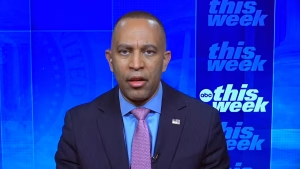A Big Night in the House
The House chamber felt different on Thursday. The air had weight to it. Lawmakers weren’t simply debating another bill. They were deciding whether America would control its own energy future or hand that power to whichever administration happened to sit in the White House next.
When the votes were counted, the result was clear. The Republican-led House passed the “Protecting American Energy Production Act” by a strong 226–188 margin. Every Republican voted yes. Democrats were split. And once again, President Donald Trump walked away with another key win.
The bill stops any future president from banning fracking unless Congress approves it. That matters. Hydraulic fracturing is the backbone of American energy. It powers homes. It fuels jobs. It strengthens national security. And Trump has spent years promising Americans he would protect it.
Thursday’s vote showed that the House agrees.
Why This Bill Matters for the Country
Energy is not just another policy issue. It touches food prices, heating bills, gas stations, national defense, and even the strength of the dollar. The Biden administration’s hostility toward oil and gas created a real burden on working families. People felt it every time they filled up their tanks or opened their utility bills.
Under Biden, Washington took a hard turn toward green activists. Regulations piled up. Drilling slowed. And agencies were told to treat oil and gas like a threat instead of a resource.
This bill pushes back. Hard.
It says the president cannot suddenly block drilling on millions of acres of land, like Biden did before leaving office. It forces any fracking ban to go through Congress. That gives the people a voice. It also ensures the next president — whether ambitious or ideological — can’t tank America’s energy independence overnight.
Rep. August Pfluger of Texas, who wrote the legislation, said it best. Biden opened a “war on American energy.” And this bill is the first major step in reversing it.
How We Got Here
A lot changed in just a few years. During Trump’s first term, America became an energy powerhouse. Gas prices were low. Jobs were strong. The world respected American oil and gas strength.
Then Biden took office and imposed a sweeping freeze on new drilling across 625 million acres of land and water. It wasn’t just a policy shift — it was a shockwave through every energy-producing state.
When Biden banned drilling along major coastal areas, businesses pulled back. Investors hesitated. Prices climbed. And families felt the hit.
That is why Thursday’s vote matters. It was more than symbolic. It was a course correction.
Trump came into office with a promise: drill, baby, drill. He said he would unleash American energy again. And this bill gives him the foundation to do it.
A Political Earthquake Democrats Didn’t Expect
If the vote itself was straightforward, the politics underneath were anything but.
One hundred eighteen Democrats voted against the bill. They sided with environmental activists. They chose regulation over reliability. They chose ideology over energy independence.
But here is the real story: more than 50 Democrats broke with the activist wing of their party and voted with the GOP. And that doesn’t happen unless they know the American people are turning on Democratic energy policies.
The shift is showing up in polls too. CNN’s own data analyst, Harry Enten, looked stunned on live TV. He showed poll after poll where Americans say Republicans are better on the economy — especially middle-class voters, who decide elections.
Democrats tried for months to scare people with talk of “tariffs” and “recession.” It didn’t work. Americans remember what prices were like under Trump. They remember full shelves and cheap gas. And they remember Biden’s disaster.
Energy, inflation, jobs — Republicans now lead on all of it.
Democrats know it. And that’s why even some of them voted with Republicans Thursday night.
An Energy Strategy Built for the Future
Soon after the bill passed, Interior Secretary Doug Burgum launched a new review of every energy-related regulation the Biden team put in place. He wants to strip out what he called “coercive climate policies.” He wants to reopen access to American resources. And he wants to restore the jobs Biden cost the country.
This is the beginning of a bigger effort. Trump has already made clear that he intends to supercharge U.S. energy. Not just fracking. Not just drilling. But pipelines, refineries, exports, LNG terminals, and rapid permitting.
His message is simple: energy is power. Give it up, and you weaken the country. Use it well, and America regains its strength.
Thursday’s vote gives him the legal footing he needs.
The Polls Tell a Story Democrats Don’t Want to Hear
Democrats and the mainstream press spent months predicting economic downfall under Trump’s return. But the numbers tell a different story. Americans aren’t buying the fear campaigns. They aren’t buying the talking points. And they certainly aren’t buying Biden’s excuses.
CNN’s poll showed Republicans leading by eight points on which party Americans trust on the economy. Reuters/Ipsos showed Republicans up by twelve points — even after months of wild stock market swings and constant media negativity.
How is that possible?
Two reasons:
-
Americans trust Republicans more on energy, inflation, and jobs.
-
Middle-class voters — the backbone of the country — are shifting hard toward the GOP.
Older Americans, who lived through real recessions, don’t get fooled by cable news spin. They remember prosperity when they see it. And they remember failures too.
That is why the energy vote is not just another bill. It is a political warning siren for Democrats going into 2026. If they stay tied to anti-energy policies, they put themselves at odds with the vast majority of working Americans.
A Win With Long-Term Impact
The House vote is one of the clearest victories Republicans have scored this year. It strengthens the energy sector. It builds a wall around fracking. It shuts the door on future presidents who want to cripple American production with the stroke of a pen.
But more than anything, it shows the momentum shifting back toward conservative policy — practical, pro-worker, pro-energy, pro-America policy.
When you combine this victory with the polling trends, the message is simple:
Americans want affordable energy again.
Americans want a strong economy again.
And Americans trust Republicans to deliver it.
Trump said he would fight for American energy.
Congress just proved they’re ready to help him do it.

Sarah Mitchell is a bestselling novelist recognized for her insightful and emotionally resonant stories that explore the complexities of human relationships. Originally from Denver, Colorado, Sarah grew up in a family of teachers who nurtured her curiosity and love for storytelling. She studied psychology at Stanford University, where she became fascinated by the intricacies of human behavior—an interest that would later shape her writing career. Sarah’s novels are praised for their nuanced characters, intricate plots, and ability to capture the subtle tensions that define love, friendship, and family ties. Her breakthrough novel, The Spaces Between Us, became an instant bestseller, lauded for its honest portrayal of strained family relationships and the fragile bonds that hold people together. Since then, she has published several works that continue to captivate audiences around the world. Outside of her writing career, Sarah is passionate about mental health advocacy and often partners with organizations to promote awareness and support for those struggling with emotional well-being. Her personal life is quieter—she enjoys hiking in the Colorado mountains, practicing yoga, and spending time with close friends. With each new book, Sarah Mitchell cements her reputation as a writer who illuminates the beauty and struggles of human connection.









